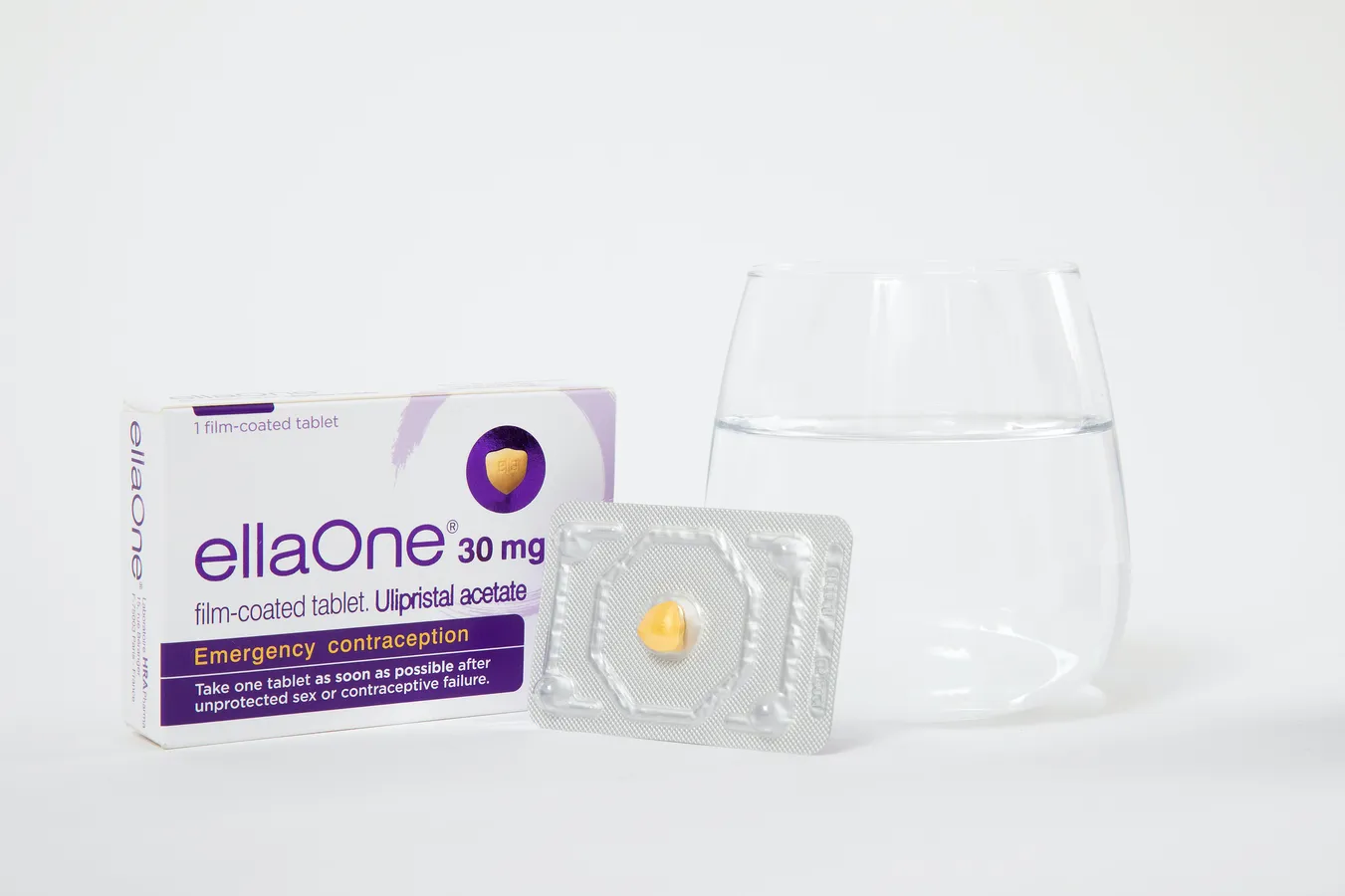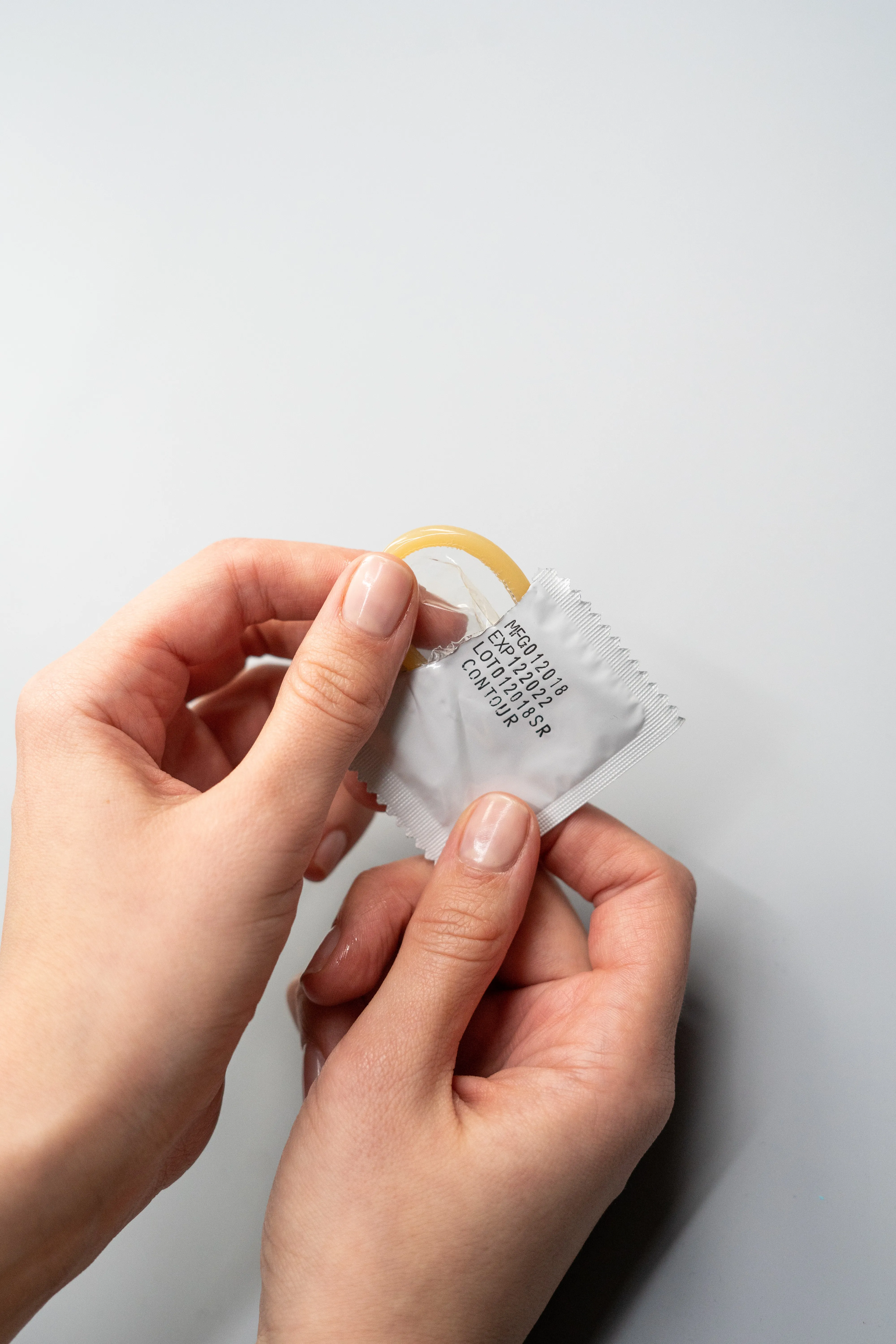All You Need To Know About Contraception
6 minuteRead

Unwanted pregnancies are like a nightmare to every woman, either married or not. Having an active sex life can come with a lot of contentment. But as a woman, who prefers the company of men, the act can come with the continuous stress of getting pregnant. It is a life-changing decision, and if you, as a person, aren't ready to raise a child or do not want to have more children, you'd like to avoid it. With medical science growing every day, it is daunting to know what to do and how.
Worry no more!
In this blog, we'll cover everything you need to know about contraception, more commonly known as birth control.
What is contraception/birth control?
It is a method, technique and/or device that keeps you from getting pregnant without any plans.
Types of contraception available.
There are many kinds of contraception available nowadays. There is no hard and fast rule on what to use. It ultimately depends on what you and your body are comfortable with. Whatever you find most acceptable and affordable is the right choice for you. If you want to make a well-informed decision on all the available options, you should continue reading this blog.
1. Condoms

The most popular and most commonly available option is a condom. It is one of the barrier methods of protection that prevents the sperm (cum) from entering the vagina while ejaculating or cumming.
They are 98% effective.
Condoms are available in two different types: external and internal. The external one is made of latex and is used on the erect (hard) penis before entering the vagina. The internal one is a soft, synthetic rubber pouch inserted into the vagina or anus before coitus.
Condoms also prevent the spread of STIs (Sexually Transmitted Infections). No other contraception can prevent this. It has no side effects on your body either.
Benefits:
- 98% effectiveness from pregnancy.
- Prevents the spread of STIs.
- Easily available.
- Cheaper as compared to other options.
- Has no side effects whatsoever.
2. Hormonal Pills

These are daily hormonal tablets, mainly progestin (artificial hormone of progesterone). Different kinds of pills are available in the market depending upon the dosage of hormones, i.e. estrogen and progesterone. It may also depend upon your menstrual cycle.
They are 91% effective.
Everybody is different, and so are the effects. Some side effects of pills include weight gain, irregular cycles, mood swings and nausea. You must consult a doctor if it's frequent and if there are more of these symptoms.
If you want to get pregnant, you can simply stop taking the pills, and you're fit to nurture a baby again.
Benefits:
- 91% effective against pregnancy.
- Conveniently available at pharmacies.
- Prevents cysts in the ovaries.
- Makes periods less painful.
- Prevents ovarian cancer to some extent.
3. IUDs (Intrauterine Devices)
These are devices made of plastic and/or metal inserted into the womb. It can stay there for 5 to 12 years, depending upon what device you are using. Sometimes it can fall out, so you have to take care of it for the first three months.
These are 99% effective.
These are also available in two different varieties: Hormonal and Non-hormonal copper IUDs.
Hormonal IUDs release progestin (artificial progesterone) and make the uterine environment unsuitable for pregnancy.
Non-hormonal Copper IUDs are tiny plastic sticks wrapped with copper wires. It secretes a small amount of copper in the uterus rendering the sperm ineffective to impregnate.
Side effects include irregular cycles which are not at all harmful to the body. It doesn't provide any protection against STIs.
In case you want to get pregnant, you can remove it with the help of any medical professional. There will not be any complications in the pregnancy. The womb environment will go back to normal very soon.
Benefits:
- 99% effective against unplanned pregnancy.
- Can forget about it for 5-12 years; no need to keep track, unlike pills. ● No medication can have an impact on them.
- Copper IUDs use no hormones.
4. Hormonal Arm Implants
A flexible plastic stick of about 4cm in length, releasing progestin. These prevent ovaries from producing eggs while also thickening the cervix's fluid, preventing sperms from entering. The sperm which manage to enter the female body finds it harder to be motile. This can last up to 3 to 4 years, at least.
It is injected into your upper arm by a trained medical professional.
It is more than 99% effective.
Side effects include slight bruising on the arm, changes in bleeding pattern (can be more often or irregular). Some people have no bleeding, but it's not harmful at all. Headaches, mood swings and sore breasts can also be seen during the initial period.
It can be easily removed by any medical professional if you wish to get pregnant usually.
Benefits:
- More than 99% effective after seven days of insertion.
- Can forget about it for five years; no need to keep track; unlike pills ● Inexpensive as long-term contraception when compared to IUDs.
- Safe for use during breastfeeding.
- A safer option for women.
5. Withdrawal / "Pulling Out"
This is a method to pull out the penis from the vagina right before ejaculation (cumming). The risk of pregnancy is much higher than the methods as mentioned earlier and devices.
This method is not at all recommended for several reasons. Young adults are especially advised against it as they are more fertile. There might also be sperms in pre-cum which might leak before ejaculation. If the penis is not withdrawn at the right time, the purpose of it is defeated.
It is still better than using no contraception at all.
Some other permanent methods
These methods are best for couples who already have children and wish for no more. These procedures last for a lifetime and let you be free of keeping track of pills or hormones.
1. Vasectomy / "The Snip"
This effective method of contraception is done in men. A minor surgical process blocks the vas deferens, not letting the sperm travel from the testicles to mix with the semen. The body then absorbs it.
It's 99.5% effective and will last for a lifetime.
The vas deferens is cut and tied. This will, however, do not affect the erection of the penis, and neither will affect the amount of ejaculation.
There will be pain for a few days on the abdomen region and minor bruising and scarring at the wound site.
Sperm tests are done after the surgery to make sure the process is entirely successful.
Benefits:
- 99.5% effective against unplanned pregnancy.
- This will last forever. Thus, no need to worry about keeping track of contraceptives at all.
- It will have no impact on your hormones or sex drive.
2. Tubal Ligation / "Having your tubes tied"
This process is for women. In this minor surgery, the fallopian tubes are blocked by small clips. After each menstrual cycle, a mature egg is released towards the uterus. Tubal Ligation, blocking the tubes, stops the egg from moving into the womb. Only ectopic pregnancy is possible after this surgery. (Ectopic pregnancy is the fertilization of egg anywhere but the uterus)
It's 99.5% effective and will last for a lifetime.
There will be a pain for a few days on the abdomen region and minor bruising and scarring at the wound site.
Benefits:
- 99.5% effective against unplanned pregnancy.
- This will last forever. Thus, no need to worry about keeping track of contraceptives at all.
- It will have no impact on your hormones or sex drive.
Emergency Contraception
If there was no contraception used, if the condom had split or pills were missed, emergency contraception helps you from worrying about pregnancy.
The most popular form is progestin-only pills. Popularly known as "Morning After Pill." It is a single tablet taken soon after intercourse (up to 72 hours). It stops or delays ovulation to prevent pregnancy.
Potential side effects include nausea, vomiting, abdominal pain, cramps, irregular cycles, headaches and sore breasts.
World Contraception Day (WCD)
Every year on the 26th of September, organizations raise awareness and spread the word about contraception and safe sex. It focuses on teaching the younger generation to make informed decisions before engaging in sexual activities and about pregnancy. The number of options available in this era can be confusing. Thus, different organizations talk about every method and how it helps prevent STIs, is more conveniently known, is more effective and available, and what is best for you.
No contraceptive method or device, or procedure is entirely or 100% effective. Abstinence is the only way to avoid STIs and pregnancy. But with the further growth of medical marvels and the development of so many new technologies, contraceptives are pretty compelling to prevent unplanned pregnancy.
Write, Record and Answer! Consume Unlimited Content! All you need to do is sign in and its absolutely free!
Continue with one click!!By signing up, you agree to our Terms and Conditions and Privacy Policy.










